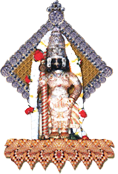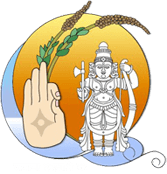If there is a Dharma which propagated a cosmic outlook on life, a culture, which has been striving for ‘Sarve Janah Sukhino Bhavantu’, the welfare of all, it is Indian Culture or Hindutva, as we call it. It has been addressing itself to the entire human society, analyzing its problems, suggesting solutions to all the problems. In the words of Dr. S. Radhakrishnan “It is a way of life. It is a flow of ideas which can make life beautiful, fruitful; it is a heritage that gives its members a sense of fulfillment and bliss. It is concerned with every form of life and its sustenance. It gives man the needed samskaras which would help man lead an ideal life”.
The Supreme Court in one of its landmark judgments has given the following description of Hindu way of life. “One cannot understand Hindutva in a narrow sense. It refers to the way of life of the people who live in this great subcontinent. The word must be understood as a way of life and it should be understood only in this background”.
Chief justice Gajendra Gadkar in one of his judgments says , when we start thinking about Hinduism, we meet with difficulties while describing the features of it. It is not propagated by any angel like other religions. But its followers do not worship just one god, they do not hold just one opinion about life; they do not stick to one philosophy of life. They never follow a universal way of worshiping god or social customs. They never stick to or believed in the customs and manners of just one sect of people. As a result, the concept of Hindutva could be understood as a broad based way of life but not in any other narrow sense.
It is a way of life. It has the following distinct features:
1. It believes in God who is the living force of all existence. All living beings have a spark of Ishvara.
Ishavasyamidam sarvam yatkinchajagatyam jagat.
(Yajurveda 80/A)
The same idea is given by Lord Sri Krishna in the Bhagavadgita.
Ishvarah sarvabhutanam hdriddesherjuna tishtati |
Bramayan sarvabhutani yantraroodhani mayaya ||
2. It firmly believes that soul is immortal; only body decays.
Nainam Chindanti Shasttrani, nainam dahati pavakah |
Na chaiman Kledayatyapo no sheshayati maruthah ||
Soul cannot be wounded by weapons; neither can it be burnt by fire. Water cannot wet it, nor can air dry it. It is part of the universal soul, the paramatma. People get confused between the existence of soul gets relieved of the body. Salvation is the ultimate goal of existence.
Sa Vidya ya Vimuktaye
3. The concepts of Karma and rebirth
Hindutva believes that the present life is the fruit of Karma accrued in the previous births. The next birth is the follow up of the present birth. You reap the fruit of your labor, whether it is sweet or sour.
‘Avashyameva bhoktavyam kritam karma shubhashubham’
4. Concept of Moksha
The Hindu way of life believes that the soul is imprisoned in the body. It is engulfed in ignorance. Ignorance is the cause of sorrow. Therefore it is sole aim is deliverance from this imprisonment through the attainment of jnana and ultimately get fused with the universal soul.
5. the Hindu way of life
Hindutva believes that God exists in every living and non living being.
‘Maua tatamidam sarvam jagadvyakta murtina’
“I am all pervading, present in everything. People cannot see me. There is no difference between Me and other living beings. Everything is in Me and I am in everything. This vision of the soul is the cornerstone of Hinduism. In the Bhagavad Gita the Lord says –
Yo mam pashyati sarvatra, sarvam cha mayi pashyati |
Tasyaham na pranashyami sa cha me na pranashyati ||
The one who sees Me everywhere, and sees everything in Me, he is always a part of Me and we two cannot live apart. The same idea is expressed by Tulsi Das in his Sri Ramacharitamanasa.
Jada chetana jaga jeera jata sakala Ramanaya jani |
Bandavu sabke pada kamala sada jori juga pani ||
“In this world of jada and chetana in everything Rama pervades. Knowing this truth, I prostrate at your lotus feet” W.B. Yeats in one of his most beautiful poems “The Indian upon God” brings out this idea very beautifully. Hindus worship God in different forms and in different ways. There is absolute freedom of worship and this is the secret of success of our Sanathana Dharma which has withstood foreign onslaughts over a few thousand years. Conquerors invaded this country, made this their home and began to Coexist with us peacefully until recently. In this great land great concern is shown on the poor, the weak and every living being. We see people feeding ants with sugar and flour, birds with nuts, fodder and water for cattle even when they have outlived their usefulness. In a nutshell we can conclude that man’s relationship with creation in close and intimate. Man feels that he has a duty towards nature.
Service and Sacrifice
Life in this country is based on the dual principle of Service and Sacrifice. These are kinds of Yajnas performed throughout life. Earning, saving and enjoying what is earned are governed by certain social rules. Our focus is not on our rights. But our duties. Rights and power are result of western ways of thinking. This has resulted in cut-throat competition, friction, jealousy and hatred. This has resulted in the break up of the joint family system.
There is no question of power in Hindutva. Instead, we think of our duties. A certain form of sacredness is attached to duty and service. It is termed as Dharma. We have concepts such as putra dharma, pitru dharma, patni dharma, sevaka dharma, swamy dharma, vidyarthi dharma etc. Our society became well established and as a result of these dharmas.
If a society or a country has to become strong, its members have to do their duties. It is just on account of this noble dharma that great persons like Dadhichi existed and he donated his backbone for making Vajrayudha which saved the world from the wicked demons. He did so because he was conscious of his dharma.
Gratitude
Man, animal and nature are so interdependent that life without the co-operation of the other is unthinkable. According to the Hindu view each has to look at the other with gratitude. Gratitude and a sense of being sacred go hand in hand. We are grateful to God and everything in nature. This is the source of our respect for parents, elders and a lot of other things in life. Mother is given the pride place in our culture.
Matruvat Paradareshu – consider every other woman equal to mother. In Sri Ramachandra’s words
Api Swarnamayi Lanka, na me Lakshmana rochate |
Janani janma bhumischa swargadpi gariyasi ||
Mother and land on one’s birth are equal to heaven.
Direct contact with Nature
A Hindu always desire to have closer contact with Nature. It is a broad concept. We find the worship of trees and holiness attached to certain kinds of trees. Trees play a significant role in human life. They keep the environment clean. Tulasi, Ashoka, the fig. tree, neem tree and a few more are considered holy. They are worshipped. Going on pilgrimages forms part of Hindu life. While on a pilgrimage, climbing certain hills, bathing in rivers are common.
The Concept of Purushartha
Dharma, artha, kama and moksha are considered purusharthas and in performing these, an Indian considers his life attains in the culmination – Moksha.
Dharma is an all pervading concept. It is an art of life. It sustains social life. Doing one’s duty. Concern for others, co-operation, love of peace and non-violence are some of the features of dharma.
Dharmo rakshati rakshitah
Dharma protects those who protect dharma. Wealth is necessary but one has to earn just that much for sustaining decent life and has to distribute the excess earned back to the society by helping the poor and the needy. Kama refers to desires. These desire if they go beyond a decent limit destroy man.
Peaceful co-existence
Peaceful co-existence is the cornerstone of Hindu life. We have innumerable religious, castes, languages, customs and beliefs and we find they coexist. To a Westerner this phenomenon is unbelievable. The basis of such a life is found in the Rigveda.
Sanghacchadvam Samvadadhvam Sam vo manamsi janatam |
Devabhaagam yathapoorve Samjanana upasate ||
It mean : ‘walk together, speak together, think and reason together. Your ancestors have lived like this and followed certain practices according to their abilities and needs’.
Concept of World Citizenship
A Hindu is emotionally patriotic . His heart is kindled with the feeling of patriotism. His life is rooted in the culture of the land and spirituality. Bharatha occupies the pride of place of being the Guru of the entire world.
Etaddesha prasootasy sakashadagra janmanah |
Swam swam charitram shiksheran prithivyam sarva manavah ||
“People from different parts of this planet flock to Bharatha to learn great things from our great sages”.
Coupled with intense patriotism, a Hindu is a fired with self respect; this prevents him from being selfish or narrow minded and broad mindedness is in his blood.
“udara charitanantu vasudhaiva kutumbakam”
Say our sages. We always pray for others,
Sarve bhavanthu sukhinah sarve santu niramayah |
Sarve bhadrani pashyantu ma kschid dukhabhagbhavet ||
“Let everyone be happy, healthy and contented. Let everyone see good things. Let no one be unhappy”.
– by Prof. G. S. Mudambadithaya



Thank you very much for good information.
glad that sri GSM has precisely and neatly written about the essence of hinduism. Shall I xpect from him a detailed article about SHIVALLI BRHMINS…VASAN